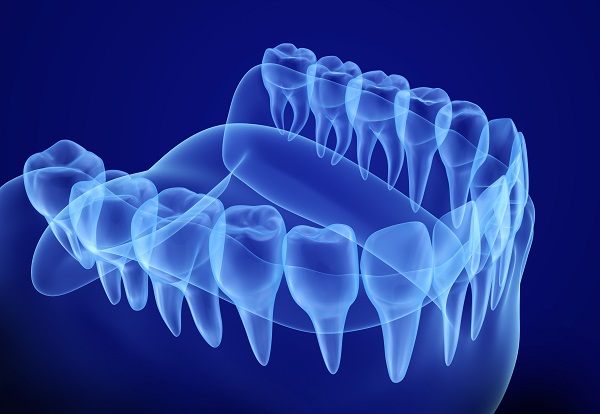Dental Implants and Bone Regeneration

Dental implants can improve oral health by preventing or reversing bone loss. They achieve this feat by imitating the function of natural tooth roots. The following explainer covers the role of dental implants in ensuring the health of the jawbone.
How dental implants work
Dental implants work in different configurations. A single implant can act as a tooth root for a single dental crown. Two implants on either side of a gap can support a bridge. A set of four or six implants can anchor a set of full dentures. Each dental implant is embedded in the jawbone and starts to mimic a tooth root upon installation.
Drilling the jaw to make room for the implant stimulates the bone into repairing itself, as does the presence of the biocompatible implant. In the weeks and months following dental implant surgery, new bone cells fuse with the surface of the implant on a molecular level. The jawbone also grows to fill every bit of space around the implant. This is one of the ways a dental implant stimulates bone regeneration in the jaw.
Dental implants and bone loss in the absence of tooth roots
The body needs a small amount of calcium in the blood. It obtains this calcium by breaking down a little bone tissue in a process known as bone resorption. Because bones are in constant use, they remember to regenerate and replace the calcium they lose through adsorption.
Jawbone needs tooth roots to trigger the replacement of the calcium it loses to resorption. Chewing or biting down causes the tooth roots to flex in their sockets, an action that stimulates the jawbone to absorb calcium. Missing teeth deprive the jawbone of tooth roots, and the bone tissue soon "forgets" to regenerate as it continues to lose calcium.
This is why people who remain without dental implants start to lose mass and density in the jaw. The lower mouth starts to change as the jawbone loses definition. What follows is a sunken look around the mouth, which ages the face.
Grafts as a part of dental implant treatment
Dentists have workarounds for dental implant candidates that suffer from some bone loss. They will recommend the restoration of bone mass in one of the following ways:
- Sinus lifts: Lifting the sinus cavity away from the upper jaw by placing bone tissue on the jaw
- Socket grafting: Restoring the shape, size, and width of the part of the jaw that forms a tooth socket
- Ridge expansion: Splitting the ridge of the jaw and packing the resulting gap with donor bone tissue to increase bone mass and bone density
These are the different ways that a dentist corrects bone loss in the jaw, often in preparation for dental implants. In some cases, the dentist will combine a bone graft procedure with dental implant surgery. In other cases, the patient will have to wait for the grafted bone to integrate with the jaw.
Interested in dental implants?
Contact us to set up an appointment and to learn whether dental implants are a good option to restore your oral health.
Request an appointment here: https://gallodental.com or call GDC Smiles at (770) 504-5725 for an appointment in our Gainesville office.
Check out what others are saying about our dental services on Yelp: Dental Implants in Gainesville, GA.
Recent Posts
Losing a tooth is never something that you would want to happen, but since it can be unavoidable, you should know that a dental implant is one of the top options for replacing a missing tooth. There are many advantages to pursuing this path over alternatives like dentures. It is true that dental implant installation…
A dental implants is widely considered the tooth replacement solution that most closely resembles a natural tooth in durability, functionality, and appearance. However, like natural teeth, dental implants require diligent and consistent care to ensure longevity. Incorporating proper dental implant care into your oral hygiene routine can prevent complications and keep your smile healthy for…
Curious about dental implants? Read on to learn more. Having a missing tooth or teeth can make you feel self-conscious and reluctant to smile in public. In many cases, dental implants are the preferred and popular option to resolve this issue. Besides being a functional tooth replacement, they also appear natural and fit in with…
A dental implant is the gold standard of dental restorations. It provides stability and natural-looking results. Understanding the benefits of implants can motivate you to see your general dentist about it. Here are the different oral health advantages of a dental implant.The titanium rod acts as the dental root. It merges with the jawbone and…


